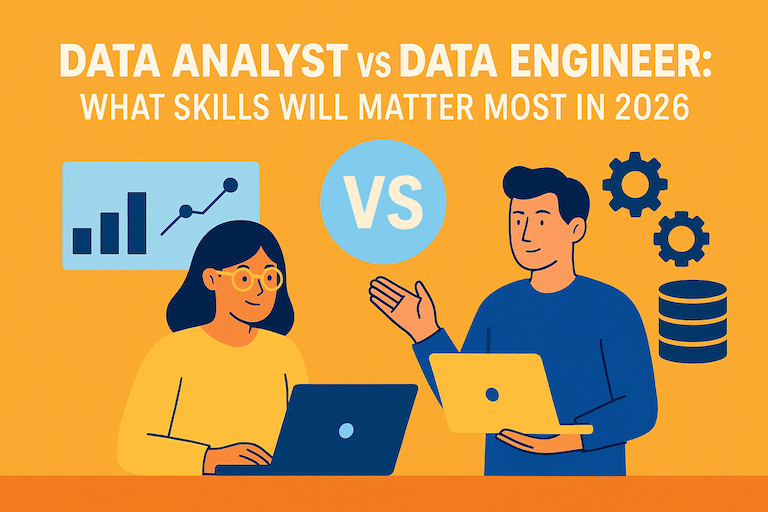
Privacy issues with big data analytics
As we continue to advance in the digital age, the use of big data has become increasingly prevalent in various sectors. While the benefits of big data are widely acknowledged, there is growing concern about the implications it has for individual privacy. This blog will explore some of the common privacy issues with big data analytics, focusing on the ethical and legal challenges that arise when handling large volumes of personal information while keeping cyber threats at bay. We will discuss how the collection, storage, and analysis of data can impact individuals, often in ways they might not anticipate.
What are the privacy risks with big data analytics?
Big data refers to the vast volumes of data generated every second by our digital activities. This data is not just large in quantity; it is also varied in type and comes from numerous sources, including social media interactions, online purchases, GPS signals, and even the sensors embedded in everyday devices. The sheer scale and diversity of this data present unique challenges, particularly when it comes to privacy.
One of the primary concerns with big data is the way it is collected. Often, data is gathered without individuals fully understanding what information is being captured or how it will be used. For instance, mobile apps and websites frequently collect data in the background, tracking users’ behaviours, locations, and preferences, sometimes without explicit consent. This raises significant privacy issues, as individuals may not be aware of the extent of their data that is being stored and analysed.
In many cases, data collection practices are not transparent, and consumer data may be shared between organisations or combined into new data sets. Such data sharing increases privacy risk, especially when personally identifiable information (PII) is involved. Without clear limits on how data is gathered and stored, there is a heightened chance of privacy violations.
Another critical risk associated with big data is the potential for re-identification. Even when data is anonymised—stripped of personal identifiers such as names or email addresses—it can sometimes be re-identified when combined with other datasets. For example, a dataset containing anonymised health information could potentially be linked to another dataset with demographic data, allowing an individual’s identity to be inferred. This process of re-identification undermines the effectiveness of anonymisation techniques and poses a significant threat to privacy.
Cyber attacks and unauthorised access also create major privacy risks. As more data is stored in cloud systems, hackers target large databases, causing privacy breaches that expose personal or financial details. Effective privacy protection must therefore include strong encryption, authentication, and ongoing monitoring to reduce vulnerability.
Furthermore, the long-term storage and use of big data raise ethical questions. Data that is collected today may be stored for years, and its use may evolve beyond the original intent. For instance, data collected for marketing purposes might later be used for surveillance or to make decisions about creditworthiness, employment, or insurance. This shifting use of data, often without the data subject’s knowledge or consent, can lead to unexpected and potentially harmful outcomes.
These risks underscore the importance of robust data protection measures and clear, transparent policies governing how data is collected, stored, and used. As big data continues to play a crucial role in innovation and decision-making, the challenge remains to balance these benefits with the need to protect individuals’ privacy.
How is data collected and shared in big data environments?
Big data relies on continuous data collection from multiple sources, including mobile apps, IoT sensors, social platforms, and online transactions. Each data source contributes to a larger data set used for analysis and decision-making. However, when consumer data is gathered without explicit consent or shared between third parties, it raises serious privacy concerns. Unclear data sharing agreements can result in unauthorised access or misuse, increasing the risk of privacy violations. Organisations should apply strict controls to ensure that only the necessary information is collected and shared, reducing the likelihood of a privacy breach and improving compliance with data protection law.
What are the ethical considerations in handling big data?
As the use of big data continues to expand, so too do the ethical responsibilities of organisations that collect, store, and analyse this information. Handling big data ethically is not just about compliance with laws; it’s about respecting the privacy and rights of individuals whose data is being used. In this section, we will explore some key ethical considerations, with a particular focus on the General Data Protection Regulation (GDPR) in the UK.
One of the foremost ethical principles in big data handling is informed consent. Individuals should have a clear understanding of what data is being collected, how it will be used, and who will have access to it. GDPR legislation in the UK enforces this principle by requiring organisations to obtain explicit consent from individuals before collecting their personal data. This regulation ensures that individuals are not only informed but also have control over their data, with the ability to withdraw consent at any time.
Another important ethical principle is data minimisation. This involves collecting only the data necessary for a specific purpose and avoiding the accumulation of unnecessary information. GDPR reinforces this principle by mandating that personal data collected must be adequate, relevant, and limited to what is necessary in relation to the purposes for which they are processed. This helps to reduce the risks associated with storing large volumes of potentially sensitive information.
Transparency is also a critical ethical consideration. Organisations must be open about their data practices, providing clear and accessible information to individuals about how their data is being used, who has access to it, and for what purposes. Under GDPR, organisations are required to provide privacy notices that detail these aspects, ensuring that individuals are fully aware of how their data is being handled.
Finally, accountability plays a vital role in ethical data handling. Organisations must take responsibility for ensuring that data is processed securely and ethically. GDPR imposes strict obligations on organisations to implement appropriate technical and organisational measures to safeguard personal data. In the event of a data breach, GDPR mandates that individuals be informed without undue delay, and organisations may face significant penalties for non-compliance.
What technological solutions can ensure privacy in big data?
As organisations increasingly rely on big data to drive innovation and decision-making, the challenge of safeguarding privacy becomes more complex. Fortunately, a range of technological tools and processes are available to help ensure that big data is managed responsibly and in compliance with legal and ethical standards. This section explores the main technologies and processes that organisations can employ to achieve proper governance and protect individuals’ privacy.
Data encryption
Data encryption is a foundational technology for protecting sensitive information. It involves converting data into a code to prevent unauthorised access, ensuring that even if data is intercepted or accessed unlawfully, it remains unreadable without the proper decryption key. Encryption can be applied both to data at rest (stored data) and data in transit (data being transferred over networks).
Anonymisation and pseudonymisation
Anonymisation and pseudonymisation are techniques designed to obscure personal identifiers in datasets. Anonymisation removes all identifying information, making it impossible to trace the data back to an individual. Pseudonymisation, on the other hand, replaces identifying details with pseudonyms or codes, allowing the data to remain useful for analysis while protecting individual identities. These methods are essential for reducing big data privacy concerns while still enabling big data analysis and predictive analytics.
Access controls and data governance
Effective access controls are essential for ensuring that only authorised personnel can access sensitive data. These controls can be implemented through various technological solutions, including role-based access systems and identity management tools. Strong governance helps prevent unauthorised access, data sharing without consent, and potential privacy breaches.
Privacy-enhancing technologies (PETs)
Privacy-enhancing technologies (PETs) are designed to help organisations analyse data while protecting individual privacy. They are increasingly integrated into big data applications to ensure privacy protection during analysis.
Data management platforms
Data management platforms are essential for organisations looking to handle large datasets while ensuring compliance with privacy laws and ethical guidelines. When used responsibly, these platforms allow for effective big data applications such as predictive analytics while ensuring compliance with privacy regulation frameworks.
Managing consent and compliance online
Websites and apps often rely on analytics tools such as Google Analytics to understand user behaviour. While useful for improving services, these tools collect large amounts of consumer data. Organisations must give users clear options to manage consent preferences, allowing them to decide what data is collected and shared. Effective consent management is a cornerstone of privacy protection and ensures compliance with data protection laws such as GDPR.
Big data privacy in practice: lessons from recent breaches
Several well-known privacy breaches have shown how mishandled data sets can expose millions of users to risk. These incidents often stem from poor data sharing practices, weak encryption, or unauthorised access. In response, privacy regulations such as GDPR, CCPA, and Brazil’s LGPD have strengthened data protection law enforcement worldwide. Under these privacy laws, organisations must report breaches promptly, demonstrate accountability, and apply lessons learned to avoid future privacy violations.
What are the legal implications and how can organisations comply with global data protection laws?
In the increasingly interconnected world of big data, navigating the complex web of global data protection laws is a critical challenge for organisations. Failure to comply with these regulations can result in severe financial penalties and lasting reputational damage.
Compliance with privacy regulation is central to protecting individual privacy and reducing the likelihood of privacy breaches. Adhering to each data protection law ensures that big data analysis and data sharing practices remain ethical and transparent.
How can your organisation comply with data privacy laws?
At Albatrosa, we have extensive experience working with large banks, SMB businesses, and consultancies to ensure they meet data privacy laws and adhere to best practices. Our team has successfully helped these organisations navigate the complexities of compliance, implementing robust processes and technologies tailored to their unique needs.
Protecting individual privacy and complying with global data protection law requires proactive management of data collection, anonymisation, and consent preferences. By combining privacy protection with smart data analysis, businesses can continue to innovate responsibly while reducing privacy risk.
If your organisation requires support in setting up or refining your data privacy processes, we invite you to contact us. We are here to help you achieve compliance and safeguard your customers’ trust.



















